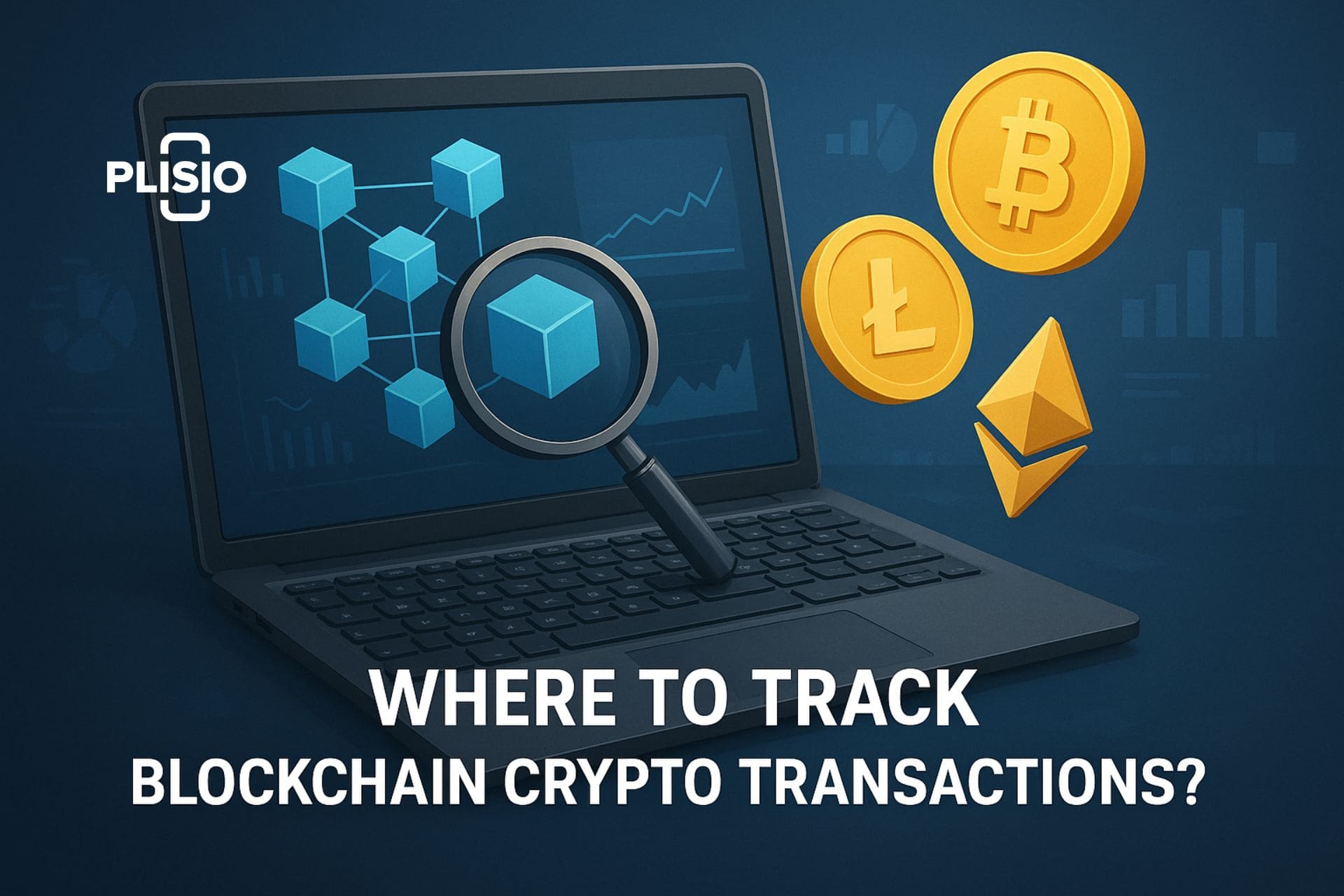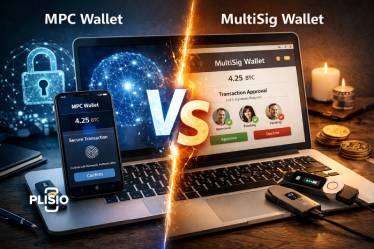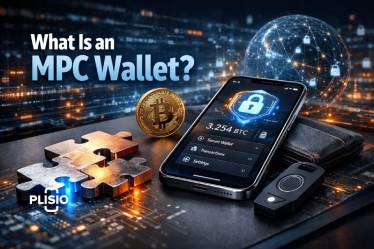Where to Track Blockchain Crypto Transactions?

Tracking cryptocurrency transactions doesn't require deep technical knowledge — it only takes the right blockchain tool. Whether you're reviewing a Bitcoin transaction, checking Ethereum activity, or monitoring your wallet balance on Solana, modern platforms help users track each crypto transaction in detail and in real time.
Blockchains function as digital ledgers, recording every cryptocurrency transaction across a decentralized network. Unlike traditional banking systems, these records are publicly available and accessible from anywhere in the world with an internet connection. This transparency builds trust and ensures compliance with global financial standards.
To track any transaction, you’ll need to use a blockchain explorer linked to the relevant coin. For instance, if you're tracking an ETH transfer, you would use a platform that supports Ethereum's blockchain. Each cryptocurrency has its own blockchain and corresponding explorer, allowing users to monitor wallet activity, verify digital asset transfers, and confirm compliance across borders.
Plisio Tip: As a leading crypto payment gateway, we've seen that businesses that integrate blockchain explorers into their transaction workflows reduce verification times by up to 60%. Our team regularly uses Etherscan and Blockchain.com for real-time checks and reconciliation.
This guide introduces some of the top platforms and explains how to generate insights from blockchain data.
2026 Crypto Market Stats: Why Blockchain Tracking Matters More Than Ever
Understanding the scale and speed of crypto in 2026 makes the case for reliable transaction tracking tools even stronger:
- Global crypto market cap surpassed $3.32 trillion in January 2026, with Bitcoin alone holding over 57% dominance.
- Over 560 million people globally now use cryptocurrencies, marking an all-time high.
- Bitcoin processes over 557,000 transactions daily, a 44% increase from last year.
- Ethereum exceeds 1.2 million daily transactions, reflecting high demand for DeFi and smart contracts.
- 85+ million crypto wallet apps downloaded globally; projected to surpass 1 billion users by 2030.
- $14.2 billion moved in daily crypto transactions, up 78% year-over-year.
- 42% of consumers prefer digital wallets for cross-border payments.
- Wallet adoption by region: Asia (45%), Europe (17%), North America (14%), Africa (10%), Latin America (9%), Oceania (1%).
With crypto activity reaching these levels, the need to track, verify, and monitor transactions — whether for personal strategy or business compliance — has never been more crucial.
Top Blockchain Explorers You Should Know
Here are some of the most reliable and widely used explorers for various blockchains:
- Etherscan – The leading explorer for Ethereum. Use it to review wallet balances, smart contracts, and transaction history. (etherscan.io)
- Blockchain.com – Ideal for Bitcoin tracking. Offers a user-friendly dashboard for viewing transaction records and activity. (btcscan.org)
- Solscan – Designed specifically for Solana, giving users real-time insight into token and wallet data. (solscan.io)
- BscScan – Mirrors Etherscan’s layout but supports Binance Smart Chain coins and contract analysis.
- Tronscan – Official explorer for Tron. Easily monitor TRX transactions, digital assets, and staking history.
- BlockCypher – Offers tracking support for Litecoin and other altcoins. (live.blockcypher.com/ltc/)
- Bithomp – Simple interface to track XRP wallet transactions and history. (bithomp.com/explorer)
These platforms are completely free, require no signup, and offer tools to analyze wallet addresses, block numbers, and transaction hashes with ease.
What You Can Learn from a Blockchain Explorer
A blockchain explorer is more than just a search engine — it's a compliance tool and a strategic asset for crypto users. When you enter a transaction ID (TXID) or wallet address, you unlock:
- Transaction status — Pending, confirmed, or failed.
- Wallet activity — Sender and receiver address history.
- Fees — Gas or network costs paid per transaction.
- Timestamps — Exact moment of transfer.
- Block number — Which digital block holds the record.
- Token/coin details — Type of asset moved and its value.
- Unique transaction hash (TXID) — The digital fingerprint of a transaction.
These details help businesses ensure regulatory compliance, monitor asset flows, and build trust with partners and customers. The ability to link every action to a blockchain record provides unmatched transparency.
Plisio Insight: We’ve helped thousands of businesses build transaction workflows around these tools. Whether you’re filing reports or investigating irregularities, explorers offer critical proof for audits, taxes, and dispute resolution.
How to Track a Transaction Step-by-Step
Even if you don’t own cryptocurrencies, you can still use explorers to verify transactions. Here’s how:
- Visit the explorer supporting the specific blockchain of the asset you're tracking.
- Input data like a wallet address, TXID, or block number.
- Filter results using shortcuts (Ctrl+F or Cmd+F) to find relevant values or timestamps.
- Review transaction details — amount, receiver, confirmations, and TXID. Copy and share this info if needed.
Real-World Example: A freelancer in Argentina uses Etherscan to confirm when a payment in USDT (on Ethereum) hits their wallet. They immediately see the confirmation, block number, and sender address, allowing them to issue a receipt to their client abroad.
User Feedback: “I run a small e-commerce store and receive crypto payments daily. With Solscan, I can instantly verify incoming transactions without having to open my wallet app. It saves me time and helps me keep accurate records,” says Julia, a merchant accepting Solana payments.
Business Insight: A compliance officer at a fintech firm uses Blockchain.com and BscScan to monitor internal wallet activity and ensure all operations align with KYC/AML regulations.
Plisio Use Case: We recently supported an online platform processing high-volume payments across 20+ crypto assets. By integrating BscScan and Etherscan directly into their backend, they reduced transaction validation time by 45% and improved customer resolution speed.
Tracking tools allow you to monitor market activity, validate transfers, and generate reports for strategic decisions.
Final Thoughts
In the fast-moving world of crypto, being able to track cryptocurrency transactions confidently is a major advantage. Blockchain explorers provide real-time access to transaction history, wallet details, and digital asset records — helping users stay informed and in control. Whether you're managing personal funds or operating a crypto business, having insight into every transaction builds trust and ensures compliance in an increasingly regulated market.
With just a wallet address or TXID, anyone can link into the blockchain and verify the activity of any coin across supported networks. That’s the power of decentralization — and with the right platform, it's right at your fingertips.
About Plisio: With over a decade of experience in the crypto payment space, Plisio provides secure and scalable solutions to help businesses accept and manage cryptocurrency payments. Our team of experts actively monitors blockchain trends to help our clients stay ahead — with transparency, trust, and strategic insight at the core of every service we offer.




